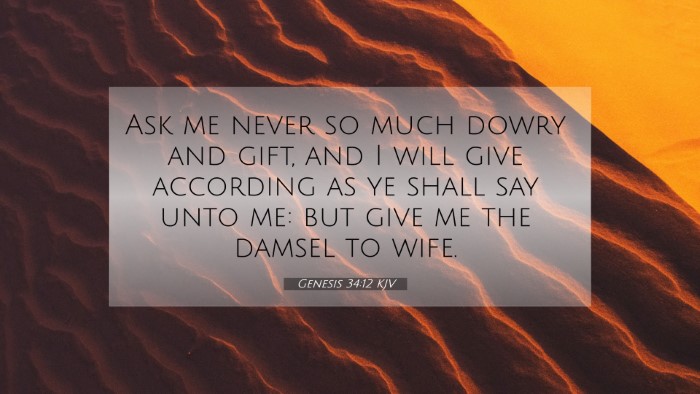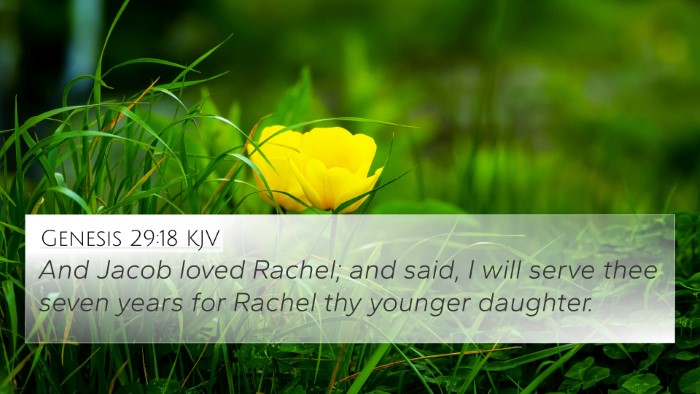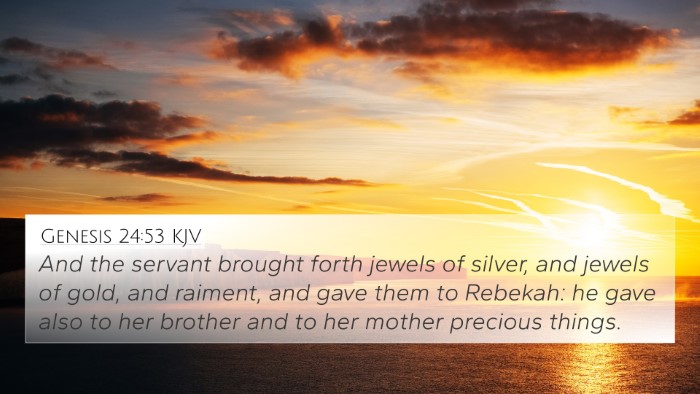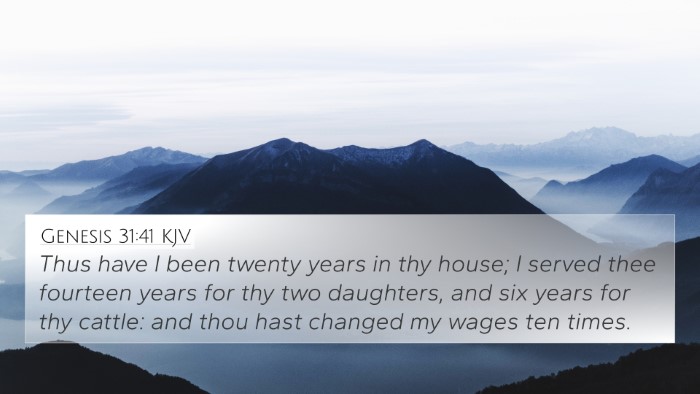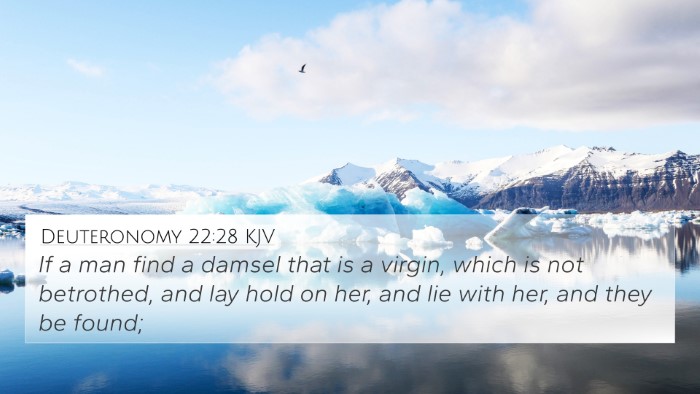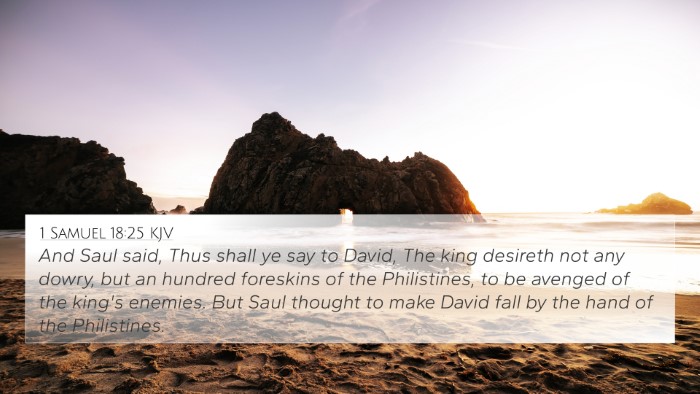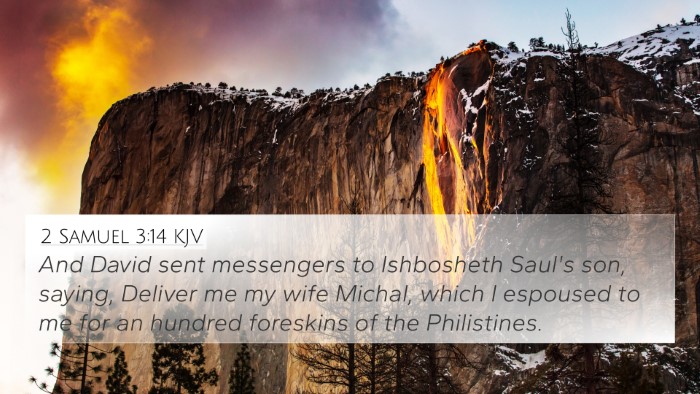Understanding Genesis 34:12
Genesis 34:12 records a significant moment involving Shechem and his proposal regarding the marriage to Dinah, the daughter of Jacob. The verse states, "Ask me never so much dowry and gift, and I will give according as ye shall say unto me: but give me the damsel to wife." This verse reveals themes of negotiation, value, and the cultural implications in ancient marriage practices, as well as a foreshadowing of deeper conflict between the Canaanites and the Israelites.
Contextual Overview
This chapter narrates the events following the violation of Dinah by Shechem, the son of Hamor, and the ensuing negotiations that lead to significant consequences for both families. Public domain commentaries provide insights that help us examine the underlying meanings within this verse.
Insights from Commentaries
-
Matthew Henry:
Henry highlights that Shechem's approach reflects a mercenary attitude, focusing on transactional elements concerning Dinah rather than genuine familial connection. He points out how this proposal sets the stage for subsequent treachery and violence, emphasizing the moral decay of the Canaanites.
-
Albert Barnes:
Barnes elaborates on the significance of dowry in ancient cultures, explaining that Shechem's offer suggests both wealth and power dynamics at play. This reflects the societal customs of the time, where a dowry often signified the status of both parties involved in marriage.
-
Adam Clarke:
Clarke's interpretation reflects on the desperation of Shechem, showing that his willingness to negotiate excessive dowry implies a deep fixation on Dinah. It sets a dark tone for the narrative, as the subsequent actions by her brothers introduce themes of vengeance and justice.
Thematic Connections
Genesis 34:12 can be examined thematically alongside several Bible verses to observe connections within the text:
- Exodus 22:16-17: Discusses the laws regarding seduction and the idea of dowry, forming a direct link with the events surrounding Dinah.
- Leviticus 18:24-30: Offers guidance on avoiding the abominable practices of the Canaanites, thus linking the societal behaviors observed in Genesis 34.
- Deuteronomy 22:28-29: Further addresses the fate of a man who lies with a virgin, aiding in understanding the cultural implications of Shechem's act.
- Genesis 34:1: Contextualizes Dinah's character and her initial explorations that lead to this pivotal moment, showing her vulnerability.
- 2 Samuel 13:1-14: Compares another act of violation and family conflict, drawing parallels in human tragedy and moral failings.
- Luke 14:28: Discusses the importance of counting the cost before entering into agreements or commitments, tying back to Shechem's negotiations.
- Proverbs 6:32-35: Highlights the emotional and spiritual consequences of infidelity, connecting to the broader themes of sin and justice in Genesis 34.
- Genesis 49:5-7: Foreshadows the long-term repercussions for Shechem's act and Jacob's sons, showing the unfolding legacy of violence and strife.
- Revelation 21:8: Concludes the narrative of unrepentant sin, framing the consequences of actions in Genesis within the broader cosmic struggle between good and evil.
- Matthew 7:12: The principle of treating others as you wish to be treated underscores the moral implications of Shechem's choices and Dinah's experience.
Cross-Referencing Biblical Texts
Understanding Genesis 34:12 also involves cross-referencing various Biblical texts to enrich one's comprehension. Here are some methods and tools for effective Bible cross-referencing:
- Bible Concordance: A useful tool to find words or phrases within scripture, enabling readers to locate related themes and verses.
- Bible Cross-Reference Guide: Offers a systematic way to explore scripture connections, enhancing Bible study sessions.
- Cross-Reference Bible Study: Methodology for integrating various verses on the same theme or narrative to unveil deeper insights.
- Bible Chain References: Connecting verses in a sequence to observe the biblical narrative's flow can illuminate complicated themes.
- Comprehensive Bible Cross-Reference Materials: These resources aid in understanding relationships and parallels between different biblical texts.
Conclusion
Genesis 34:12 serves as a pivotal point in the narrative of Dinah, revealing complex themes of societal norms, familial honor, and moral decay in antiquity. By employing various tools available for Bible cross-referencing, readers can unveil the inter-Biblical dialogues and dramatic evolution of this story within the context of the broader Scripture.


